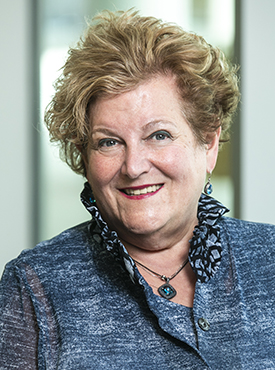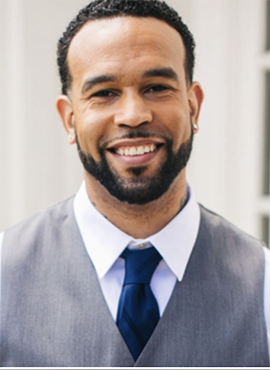Faye Taxman, a health services criminologist and Distinguished University Professor in George Mason University’s Schar School of Policy and Government, has mentored C.J. Appleton, a PhD student in Criminology, Law, and Society, since 2019.
They have worked together at Mason’s Center for Advancing Correctional Excellence (ACE), of which Taxman is the director, building a professional relationship that accelerated Appleton’s evolution as a scholar and provided the center with what Taxman calls “a role model for the field.”
So it is with great pleasure for both that they will be honored at this week’s American Society for Criminologists (ASC) annual meeting in Philadelphia.

Taxman, part will receive the August Vollmer Award, given to someone whose scholarship and professional activities have made outstanding contributions to justice and/or the treatment or prevention of criminal or delinquent behavior.
Appleton will receive the Ruth D. Peterson Fellowship for Racial and Ethnic Diversity, which encourages students of color, especially from racial and ethnic groups underrepresented in the field, to enter the fields of criminology and criminal justice.
“For me, to be on this journey with her and to have learned from her and to see how talented and incredible she is, it’s an honor and pretty special that we both can receive something at the same time,” Appleton said.
“It’s awesome,” Taxman said. “It makes me very happy.”
Their story began in 2018, when Appleton basically cold-called Taxman in an email to ask about Mason’s PhD programs. Appleton had turned his life around after several years in correctional institutions for an assortment of drug possession and probation violations, and earned a bachelor’s degree in sociology/anthropology at Lewis & Clark College, and a master’s degree in sociology from Portland State University.
They met later at an ASC meeting and quickly learned their visions aligned. In fact, Appleton said, “[Taxman] is the reason I chose Mason.”

“What I see in C.J. is a person who has endured a lot of struggles in his life and benefited from good, quality rehabilitative treatment services and wants to give back to the next generation,” Taxman said. “He embraces the notion that any of us can serve our community. His way is by mentoring and helping people understand that when people in society don’t do well, there are ways to help them so they can pursue a more productive life and be a productive citizen.”
Appleton said Taxman immediately made him feel part of the ACE team instead of what he called “a worker bee doing tasks for other people.”
“I have been put in charge of various aspects and components for the last five years and because of that I have a lot of confidence, not just in my skills but in my ability to figure it out,” Appleton said. “That’s one of the biggest things I’ve gotten in my experience at Mason, just confidence that comes through being put in the fire and being supported.”
Appleton said he is most proud of his research with a team that created a free resource available on ACE’s website that explains best practices and guidelines in administering probation conditions. That led to ongoing work with the state of Massachusetts to revamp its condition-setting practices.
Taxman, as Schar School dean Mark J. Rozell said, “is a powerhouse whose work on criminal justice reform reaches well beyond the academe to inform public discourse and policymaking.”
“I’ve been able to develop models about how to implement improvements in how the criminal legal system can actually help people change and reduce their criminal behavior,” Taxman said. “So this award means that I am recognized, but that my work is recognized in terms of highlighting to the next generation of researchers the different ways people can pursue having an impact on public policy and engage public institutions in change.”
A lesson that helped lead Appleton to success.

Related Stories
- November 14, 2023

In This Story

